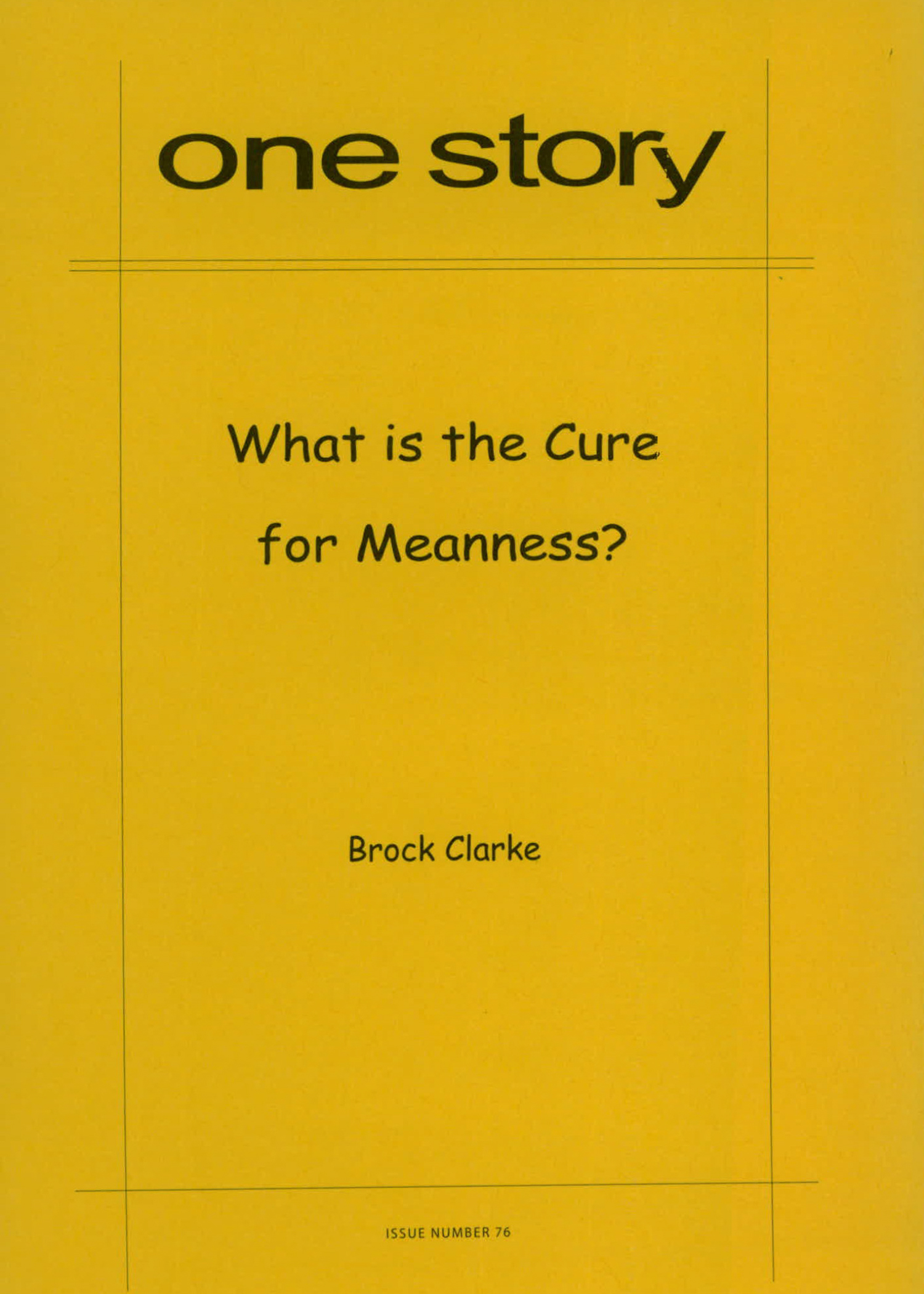
What is the Cure for Meanness?
$2.50
Sold out
Excerpt
The first gift that died was the lilac bush. I gave it to my mother after Dad had left her and moved in with Julie from work. Because Mom was pretty depressed—not just about my father leaving her, but the way he’d left her, on her birthday, her fifty-second birthday, with the cake right there on the table, the vanilla cake with vanilla icing and blue Happy Birthday! lettering and pink flowers, the cake that my mother had made for herself, as always, the cake that my dad said was so crummy, even though he hadn’t eaten any of it yet, because, he said, he didn’t even have to eat any of this particular cake to know it was crummy because the birthday cakes she had made over the years were always crummy, because my mother couldn’t bake her way out of a paper bag and how could she not know, at this late date, that she couldn’t bake her way out of a paper bag? After all, hadn’t he told her so?
Brock Clarke
Brock Clarke teaches at the University of Cincinnati. He’s the author of three books of fiction, most recently the short story collection Carrying the Torch. His fourth book—a novel called An Arsonist’s Guide to Writers’ Homes in New England—will be published by Algonquin in Fall 2007. His short stories and essays have appeared in Virginia Quarterly Review, the Believer, New England Review, Georgia Review, Southern Review, Missouri Review, Agni, New Stories from the South, and the 2005 Pushcart Prize Anthology.
Q&A by Hannah Tinti
- HT: Where did the idea for this story come from?
- BC: A friend of mine gave his wife a Korean lilac. He gave it to her by way of apology—he’d committed some marital offense or other—and then it died, immediately, and when he told me this I told him how funny it would be if he kept giving his wife gifts to make up for whatever he’d done wrong and they kept dying, He didn’t seem to think it was funny at all.
- HT: What was the most challenging aspect of writing this story?
- BC: In the early drafts the story was too mean, pointlessly mean, and I had to put it away for precisely that reason: I couldn’t figure out the point, and I also couldn’t figure out why I kept returning to these mean characters. Why are they so mean? Why do they have to be so mean? Why do you have to be mean? Isn’t it possible to be something other than mean? These were the kinds of questions I was asking myself, and once they (through Bryan’s run-ins with his teacher) became an active part of the story, the story started working—for me, at least.
- HT: Why does Bryan keep giving his mother presents, even though each one fails?
- BC: Because he isn’t brave, smart, selfless enough to actually try and make her happy by, you know, being nice to her. Also, on a more practical level, if he didn’t keep giving her the gifts and they didn’t die, then what would the story be about? It would be a story in which the son doesn’t give his mother gifts, a story in which nothing or no one dies. Where’s the fun in that?
- HT: In the end, Bryan’s father seems afraid of Bryan and his mom. He makes a move towards the door, as if he is trying to escape. Why is that?
- BC: Because he sees that his wife has changed, that she’s not someone he can push around anymore; that she’s become like him, and this scares him. Plus, there’s a dead man on the floor. That would give anyone some pause.
- HT: Do you think there is a cure for meanness?
- BC: There is no cure for meanness, except for maybe death.
- HT: How long did it take you to complete this story?
- BC: The first draft took me about a month; the final draft I finished over the course of about two weeks. But there was at least a year in between those drafts where I didn’t work on the story at all.
- HT: What are you working on now?
- BC: I’m working on about fifteen things. I’ve started a novel set in Watertown, NY, about a man who says he’s Frederick Exley, the dead author of the great novel A Fan’s Notes; I’m also working on an essay about Muriel Spark and on a short story about a floating dinner theater. And finally, in the next week or so I’ll start going over the edits for my novel Arsonist’s Guide to Writers’ Homes in New England, which will be published next year by Algonquin.